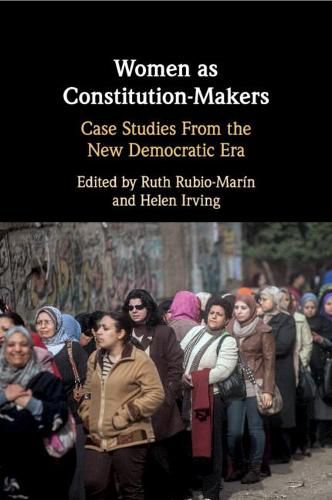Readings Newsletter
Become a Readings Member to make your shopping experience even easier.
Sign in or sign up for free!
You’re not far away from qualifying for FREE standard shipping within Australia
You’ve qualified for FREE standard shipping within Australia
The cart is loading…






That a constitution should express the will of ‘the people’ is a long-standing principle, but the identity of ‘the people’ has historically been narrow. Women, in particular, were not included. A shift, however, has recently occurred. Women’s participation in constitution-making is now recognised as a democratic right. Women’s demands to have their voices heard in both the processes of constitution-making and the text of their country’s constitution, are gaining recognition. Campaigning for inclusion in their country’s constitution-making, women have adopted innovative strategies to express their constitutional aspirations. This collection offers, for the first time, comprehensive case studies of women’s campaigns for constitutional equality in nine different countries that have undergone constitutional transformations in the ‘participatory era’. Against a richly-contextualised historical and political background, each charts the actions and strategies of women participants, both formal and informal, and records their successes, failures and continuing hopes for constitutional equality.
$9.00 standard shipping within Australia
FREE standard shipping within Australia for orders over $100.00
Express & International shipping calculated at checkout
That a constitution should express the will of ‘the people’ is a long-standing principle, but the identity of ‘the people’ has historically been narrow. Women, in particular, were not included. A shift, however, has recently occurred. Women’s participation in constitution-making is now recognised as a democratic right. Women’s demands to have their voices heard in both the processes of constitution-making and the text of their country’s constitution, are gaining recognition. Campaigning for inclusion in their country’s constitution-making, women have adopted innovative strategies to express their constitutional aspirations. This collection offers, for the first time, comprehensive case studies of women’s campaigns for constitutional equality in nine different countries that have undergone constitutional transformations in the ‘participatory era’. Against a richly-contextualised historical and political background, each charts the actions and strategies of women participants, both formal and informal, and records their successes, failures and continuing hopes for constitutional equality.